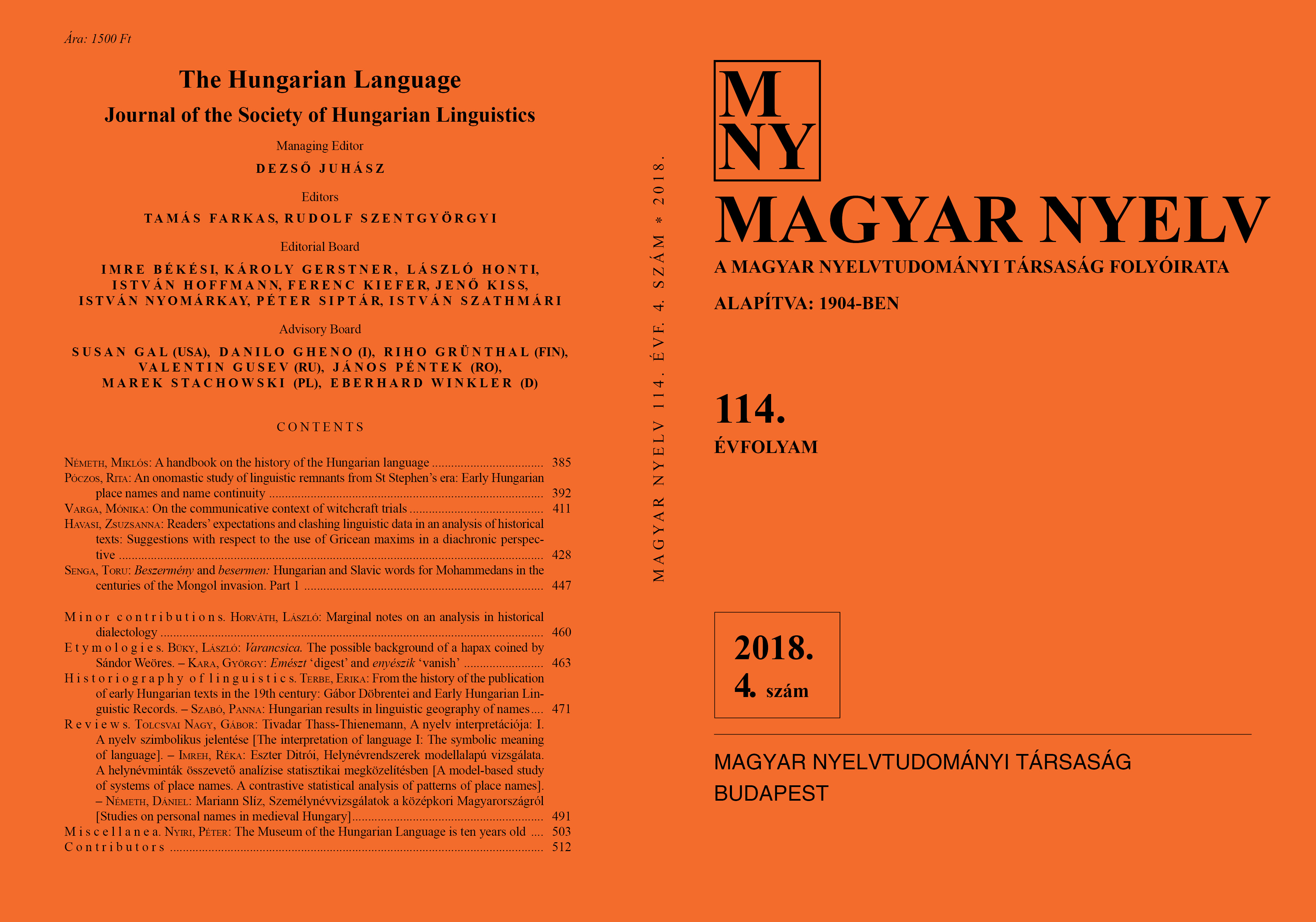On the communicative context of witchcraft trials
Boszorkány-kihallgatások kommunikációs kontextusáról
DOI:
https://doi.org/10.18349/MagyarNyelv.2018.4.411Keywords:
witchcraft documents, trials, communicative contex, pragmatics, Middle Hungarian periodAbstract
The paper studies the context of communicative strategies in Middle Hungarian witchcraft trials, including the roles in court trials against witches and the linguistic behaviour associated with them, in interrogation protocols and via a detailed analysis of a complex process of taking evidence. The cultural role of a witch includes a characteristic pattern of linguistic behaviour. On the basis of the Salem witch trials of 1692–93 an inventory of the diverse types of defendants has been set up, together with the communicative strategies they tended to follow. However, on the basis of the extant verdicts and the literature of legal history, we can draw the conclusion that, during the Hungarian legal procedures, what was more successful in most cases was denial, rather than admission. The analysis of the texts highlights the ways a communicative strategy that would count as aggressive in any other situation can be reinterpreted in the context of Hungarian interrogations.
Downloads
Published
Issue
Section
License
Copyright (c) 2024 Mónika Varga

This work is licensed under a Creative Commons Attribution-NonCommercial-NoDerivatives 4.0 International License.
Magyar Nyelv is a Diamond Open Access periodical. Documents can be freely downloaded and duplicated in an electronic format, and can be used unchanged and with due reference to the original source. Such use must not serve commercial purposes. In the case of any form of dissemination and use, Hungarian Copyright Act LXXVI/1999 and related laws are to be observed. The electronic version of the journal is subject to the regulations of CC BY-NC-ND (Creative Commons – Attribution-NonCommercial-NoDerivatives).
The journal permits its authors, at no cost and without any temporal limitation, to make pre-print copies of their manuscripts publicly available via email or in their own homepage or that of their institution, or in either closed or free-for-all repositories of their institutions/universities, or other non-profit websites, in the form accepted by the journal editor for publication and even containing amendments on the basis of reviewers’ comments. When the authors publicize their papers in this manner, they have to warn their readers that the manuscript at hand is not the final published version of the work. Once the paper has been published in a printed or online form, the authors are allowed (and advised) to use that (post-print) version for the above purposes. In that case, they have to indicate the exact location and other data of the journal publication. The authors retain the copyright of their papers; however, in the case of an occasional secondary publication, the bibliographical data of the first publication have to be included.



